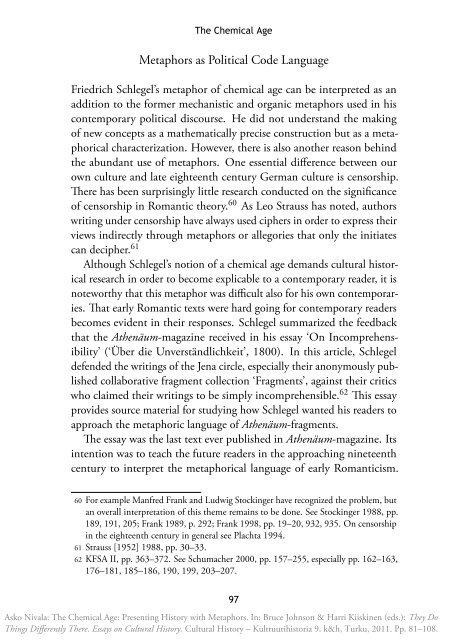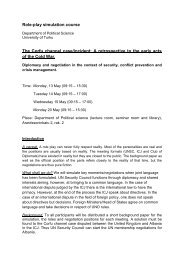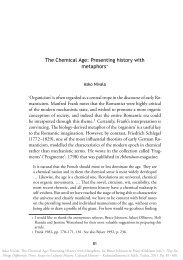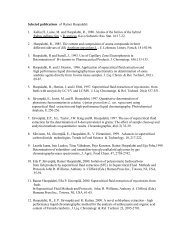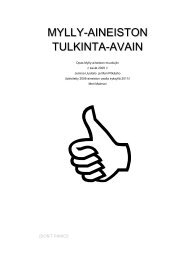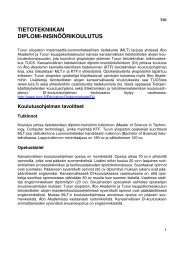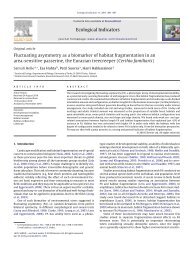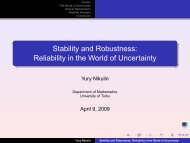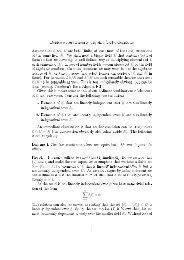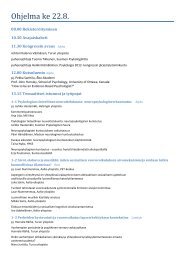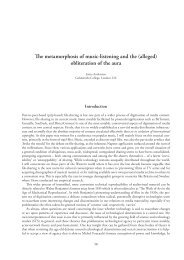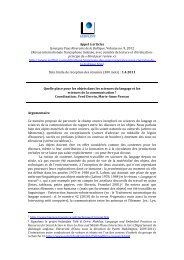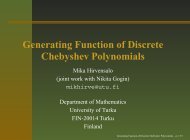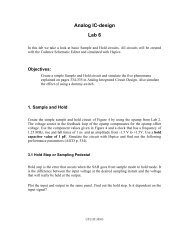The Chemical Age: Presenting history with metaphors∗
The Chemical Age: Presenting history with metaphors∗
The Chemical Age: Presenting history with metaphors∗
Create successful ePaper yourself
Turn your PDF publications into a flip-book with our unique Google optimized e-Paper software.
<strong>The</strong> <strong>Chemical</strong> <strong>Age</strong>Metaphors as Political Code LanguageFriedrich Schlegel’s metaphor of chemical age can be interpreted as anaddition to the former mechanistic and organic metaphors used in hiscontemporary political discourse. He did not understand the makingof new concepts as a mathematically precise construction but as a metaphoricalcharacterization. However, there is also another reason behindthe abundant use of metaphors. One essential difference between ourown culture and late eighteenth century German culture is censorship.<strong>The</strong>re has been surprisingly little research conducted on the significanceof censorship in Romantic theory. 60 As Leo Strauss has noted, authorswriting under censorship have always used ciphers in order to express theirviews indirectly through metaphors or allegories that only the initiatescan decipher. 61Although Schlegel’s notion of a chemical age demands cultural historicalresearch in order to become explicable to a contemporary reader, it isnoteworthy that this metaphor was difficult also for his own contemporaries.That early Romantic texts were hard going for contemporary readersbecomes evident in their responses. Schlegel summarized the feedbackthat the Athenäum-magazine received in his essay ‘On Incomprehensibility’(‘Über die Unverständlichkeit’, 1800). In this article, Schlegeldefended the writings of the Jena circle, especially their anonymously publishedcollaborative fragment collection ‘Fragments’, against their criticswho claimed their writings to be simply incomprehensible. 62 This essayprovides source material for studying how Schlegel wanted his readers toapproach the metaphoric language of Athenäum-fragments.<strong>The</strong> essay was the last text ever published in Athenäum-magazine. Itsintention was to teach the future readers in the approaching nineteenthcentury to interpret the metaphorical language of early Romanticism.60 For example Manfred Frank and Ludwig Stockinger have recognized the problem, butan overall interpretation of this theme remains to be done. See Stockinger 1988, pp.189, 191, 205; Frank 1989, p. 292; Frank 1998, pp. 19–20, 932, 935. On censorshipin the eighteenth century in general see Plachta 1994.61 Strauss [1952] 1988, pp. 30–33.62 KFSA II, pp. 363–372. See Schumacher 2000, pp. 157–255, especially pp. 162–163,176–181, 185–186, 190, 199, 203–207.Asko Nivala: <strong>The</strong> <strong>Chemical</strong> <strong>Age</strong>: <strong>Presenting</strong> History <strong>with</strong> Metaphors. In: Bruce Johnson & Harri Kiiskinen (eds.): <strong>The</strong>y DoThings Differently <strong>The</strong>re. Essays on Cultural History. Cultural History – Kulttuurihistoria 9. k&h, Turku, 2011. Pp. 81–108.97


